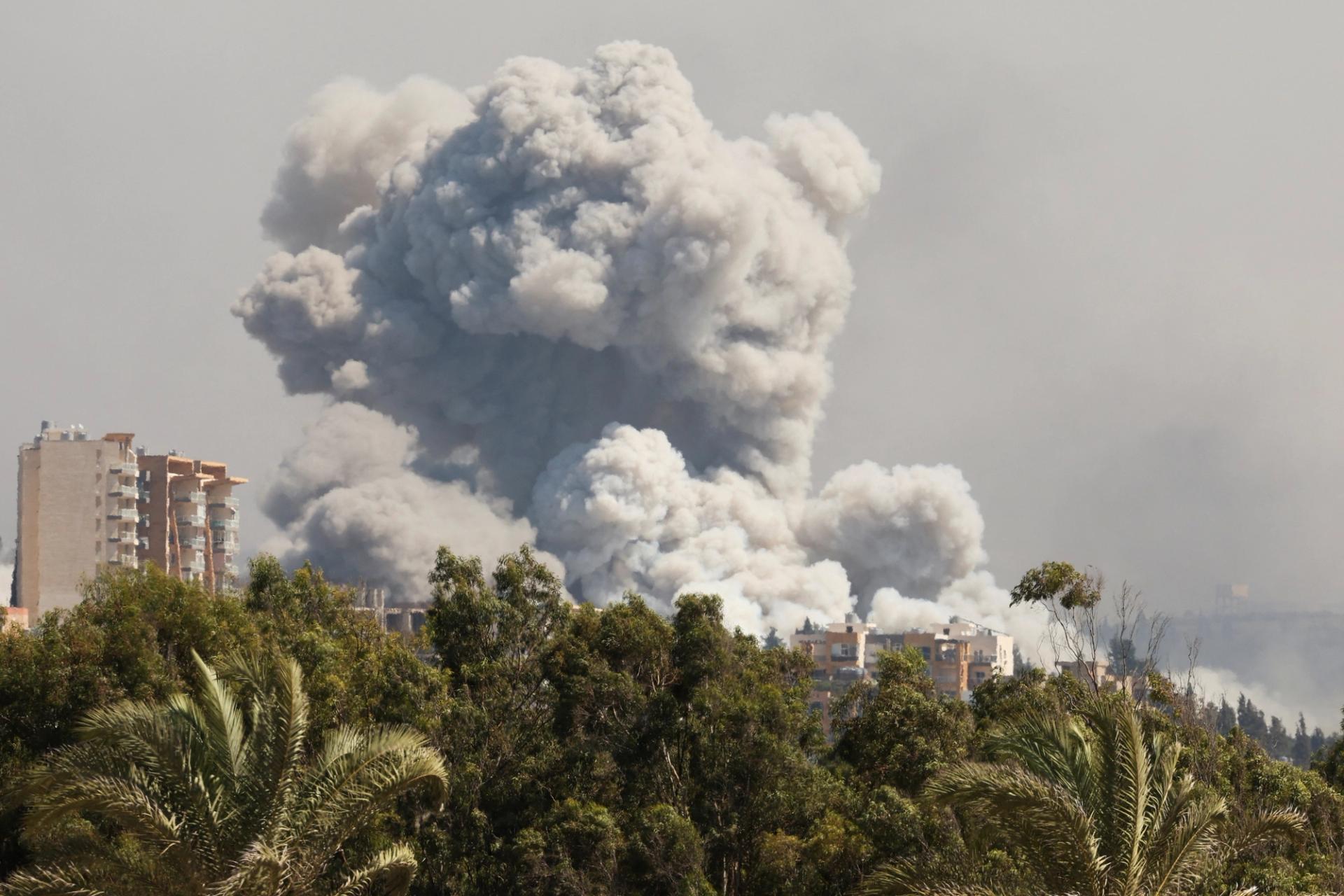The News
Israel targeted Tehran-backed proxies across the Middle East and reportedly sent Iran’s supreme leader into hiding, an offensive that analysts said presaged a wider regional offensive.
On Monday, the Israeli Defense Forces declared a “closed military zone” near the Israel-Lebanon border. The US State Department said Israel informed it it would conduct limited ground operations targeting Hezbollah, the Iran-backed militant group and Lebanon’s strongest political party.
The onslaught — including killing a Hamas leader in Lebanon and striking Houthi targets in Yemen — came after the weekend assassination of Hezbollah’s leader, Hassan Nasrallah, in Beirut. Hezbollah’s deputy chief said Monday that the group was “prepared and ready” to face Israel.
Nasrallah’s killing prompted Iran’s supreme leader Ayatollah Ali Khamenei to vow revenge; he was later reportedly moved to a secure location, and Tehran has so far responded cautiously to Israel’s escalation.
SIGNALS
Iran may be trying to avoid wider conflict
Nasrallah’s killing “abruptly wiped out a singular force in Ayatollah Khamenei’s hierarchy of close associates,” and a relationship spanning four decades, The New York Times wrote. It may leave Tehran “in a strategic bind,” an expert told the Times, stuck between an inclination to retaliate and preserve its credibility, and the possibility that Israel could attack the country directly. Iran’s strategy of relying on an “axis of resistance” made up of its proxies to deter Israel seems to have failed: “The so-called axis of resistance from its very beginning was more or less a propaganda fiction created to enhance the prestige of the Islamic Republic,” a senior fellow at the Arab Gulf States Institute told the Times.
Israel seems far from achieving its goals
The damage that Israel has inflicted on Hezbollah so far may be a sign of what a full-scale conflict might look like, with Israel “in control of calibrating and pacing combat operations,” an expert wrote for the Carnegie Endowment think tank. Still, that control would not necessarily enable Israel to achieve its stated aims, including the return of displaced Israelis to the north of the country. “[Israel’s] northern region is almost entirely depopulated, its international reputation is in tatters for the killing and suffering of so many civilians, its economy is in serious trouble, and its domestic politics is in turmoil,” an analyst argued for UK-based think tank Chatham House.
Global oil prices hold steady as regional conflict concerns grow
The escalating Middle East conflict has yet to significantly affect the oil market, with the price of Brent crude continuing to fall for the third consecutive month, Reuters reported, and oil prices remaining well below a high reached in the aftermath of last year’s Oct. 7 Hamas attack on Israel. Ultimately, Israel’s strikes against Hezbollah in Lebanon and the Houthis in Yemen do not “materially affect global oil supplies,” an investment strategist wrote, according to CNN. Striking Iran itself, however, “could lead to a response from Tehran that disrupts the flow of oil and gas from the Middle East… (leading) to much higher oil prices,” the strategist added.

